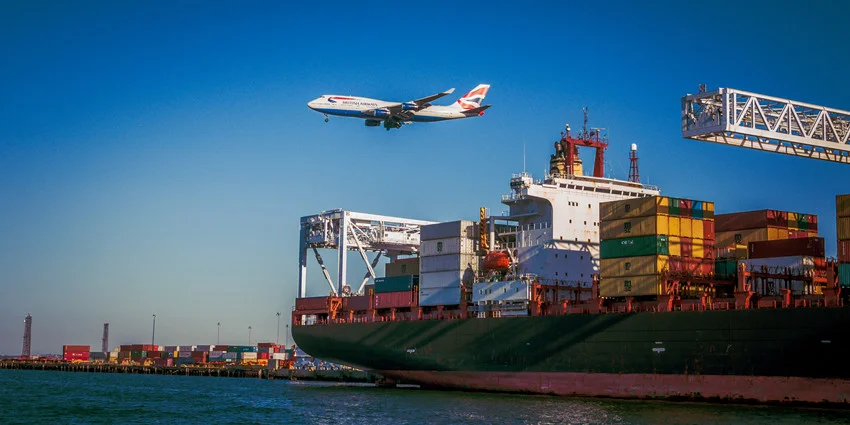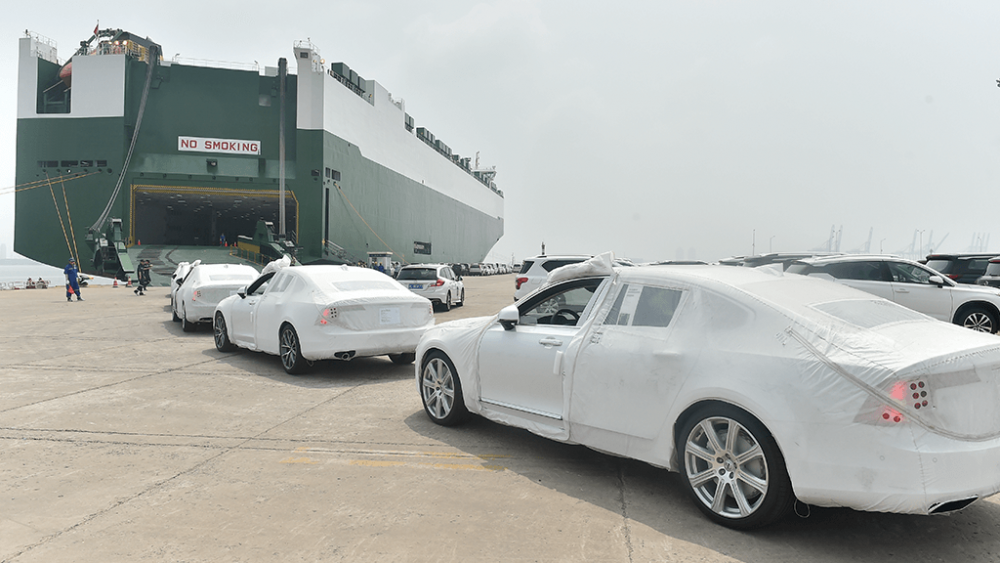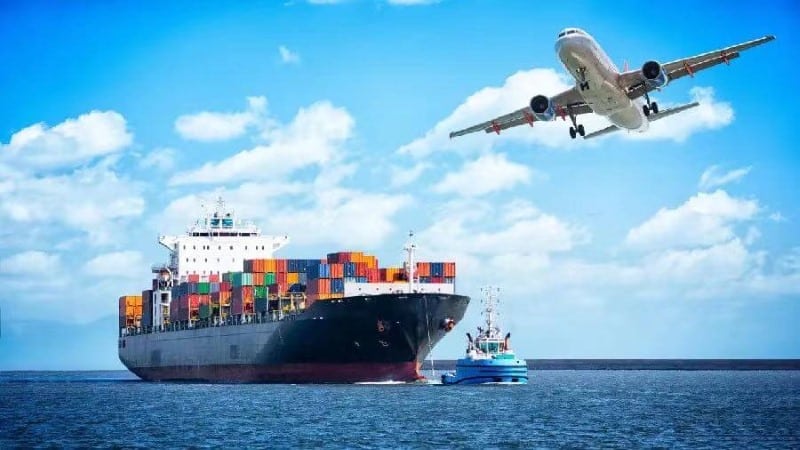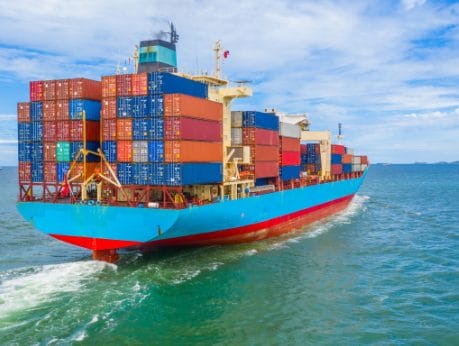In today’s interconnected world, Door to Door Shipping has become an essential service for businesses looking to import goods efficiently and reliably. Particularly when sending shipments from China to the Democratic Republic of the Congo (DRC), this shipping method offers a comprehensive logistics solution that simplifies the entire process. This guide will delve into the intricacies of Door to Door Shipping, including its definition, benefits, and key features, while providing insights into the shipping methods and procedures involved. Understanding these aspects is crucial for businesses aiming to streamline their supply chains and enhance their operational efficiency in a competitive global market.

Understanding Door to Door Shipping Services
Door to Door Shipping refers to a logistics service that involves the transportation of goods directly from the sender’s location to the final recipient’s address, eliminating the need for the recipient to manage any part of the shipping process. This service encompasses various modes of transport, including air freight and ocean freight, tailored to meet the specific needs of the importers.
The process typically involves several key stages, including:
- Pickup: The freight forwarder collects the goods from the supplier’s warehouse or factory in China.
- Customs Clearance: The freight forwarder handles all necessary customs documentation and clearance procedures both in China and upon arrival in the DRC.
- Transportation: The goods are transported via the chosen method (air or sea) to the destination country.
- Final Delivery: The shipment is delivered directly to the recipient’s address in the DRC.
This method of shipping is particularly beneficial for businesses that may lack expertise in international logistics, as it simplifies the entire process under the management of a qualified freight forwarder.
Key Features of Door to Door Shipping
-
Comprehensive Logistics Management
Door to Door Shipping offers an all-encompassing solution that covers every aspect of logistics management. From warehousing to transportation, and customs clearance, businesses benefit from a single point of contact, which reduces complexities and enhances efficiency. -
Flexible Shipping Options
Importers can choose from various shipping methods based on their budget, urgency, and type of goods being transported. Options include air freight for faster delivery and sea freight for cost-effective solutions. Each method has its advantages, and understanding these can help businesses select the most suitable option. -
Real-Time Tracking
Many freight forwarders offer advanced tracking systems that allow importers to monitor their shipments in real-time. This transparency enhances trust and provides stakeholders with the information needed to manage inventory and logistics decisions more effectively. -
Customs Clearance Expertise
Navigating customs regulations can be challenging, especially in a complex market like the DRC. Freight forwarders specializing in Door to Door Shipping possess the necessary expertise to handle customs clearance efficiently, ensuring compliance with local laws and regulations. -
Insurance Services
To mitigate risks associated with transportation, many freight forwarders provide Insurance Services. This ensures that the goods are protected against potential loss or damage during transit, providing peace of mind to importers. -
Cost-Effective Solutions
By leveraging established networks and volume, freight forwarders can offer competitive pricing options for Door to Door Shipping. Importers can benefit from cost savings compared to managing logistics independently.
Understanding these key features and the overall concept of Door to Door Shipping enables businesses to appreciate the value it brings to international trade, particularly when importing goods from China to the Democratic Republic of the Congo. For those considering this shipping method, partnering with a reputable logistics provider such as Dantful International Logistics can facilitate a smooth and efficient shipping experience. Dantful offers a Highly Professional, Cost-effective, and High-quality, One-Stop International Logistics Service Provider for global traders, ensuring that your goods reach their destination safely and on time.
Benefits of Choosing Door to Door Shipping from China to the Democratic Republic of the Congo
Convenience and Time Efficiency
Opting for Door to Door Shipping from China to the Democratic Republic of the Congo offers unparalleled convenience for businesses engaged in international trade. This method eliminates the need for importers to navigate the complexities of logistics, as the freight forwarder takes care of the entire shipping process.
-
Hassle-Free Experience: Importers can focus on their core business operations while the logistics provider manages all aspects of the shipping process. This includes arranging pickup, handling documentation, and ensuring timely delivery.
-
Streamlined Logistics: With a single point of contact, communication becomes much smoother. Any issues that arise during the shipping process can be resolved swiftly, minimizing delays.
-
Faster Delivery: Freight forwarders are skilled in optimizing routes and schedules, which can significantly reduce the transit time. This is particularly beneficial for businesses looking to respond quickly to market demands.
-
Real-Time Updates: Many providers offer tracking systems that keep importers informed about the status of their shipments. This transparency allows businesses to plan accordingly and manage their inventory levels more effectively.
Cost-Effectiveness Compared to Other Shipping Methods
When considering the total cost of logistics, Door to Door Shipping can prove to be a cost-effective solution for businesses importing goods from China to the DRC.
-
Consolidated Costs: Instead of dealing with multiple service providers (warehousing, local transport, customs clearance), Door to Door Shipping consolidates these costs into one package. This can often result in lower overall expenses due to streamlined operations.
-
Avoidance of Hidden Fees: Reputable freight forwarders include all necessary fees in their quotes, reducing the risk of unexpected costs that can arise with other shipping methods. This transparency in pricing helps businesses to budget more effectively.
-
Economies of Scale: Freight forwarders typically have established relationships with carriers, allowing them to negotiate better rates. By leveraging these relationships, they can pass on savings to their clients.
-
Insurance and Risk Management: By utilizing Insurance Services, businesses can protect their shipments against potential losses. The cost of insurance is often more reasonable when bundled with Door to Door shipping services, providing extra financial security.
READ MORE:
- Shipping From China To Algeria
- Shipping From China To Angola
- Shipping From China To Morocco
- Shipping From China To Nigeria
- Shipping From China To Kenya
- Shipping From China To Tanzania
- Shipping From China To South Africa
Shipping Methods for Door to Door Delivery
Air Freight Door to Door Shipping
Air Freight is a popular choice for businesses that require fast delivery of goods. This shipping method is particularly useful for high-value or time-sensitive shipments.
Advantages of Air Freight for Door to Door Shipping
-
Speedy Delivery: Air Freight is one of the fastest shipping methods available, significantly reducing transit times. Shipments can often reach their destination within a matter of days.
-
Reliability: Airlines maintain strict schedules, making it less likely for shipments to be delayed compared to other modes of transport. This reliability is crucial for businesses that need to meet tight deadlines.
-
Global Reach: Air freight can access remote areas that may not be easily reachable by other means, ensuring that goods can be delivered to locations throughout the DRC.
-
Less Handling: With fewer transfers between transportation modes, the risk of damage or loss during transit is minimized.
Disadvantages of Air Freight for Door to Door Shipping
-
Higher Costs: Although air freight provides speed and reliability, it tends to be more expensive than sea freight. This can be a deterrent for businesses with tighter budgets.
-
Weight and Size Limitations: Airlines impose strict regulations on the weight and dimensions of packages. This might restrict certain types of cargo, especially larger shipments.
-
Limited Cargo Types: Certain items, such as hazardous materials, may not be allowed on passenger flights, which can limit the types of goods that can be shipped via air.
Sea Freight Door to Door Shipping
Sea Freight is often the preferred choice for businesses shipping larger quantities of goods or those with budgetary constraints.
Advantages of Sea Freight for Door to Door Shipping
-
Cost-Effective for Bulk Shipping: Sea freight is generally more affordable than air freight, especially for large shipments. Businesses can save significantly on transportation costs.
-
Capacity for Large Cargo: Ships can accommodate larger and heavier shipments that would be impractical or impossible to send via air.
-
Environmental Sustainability: Shipping by sea is often considered more environmentally friendly compared to air freight, as it produces lower carbon emissions per ton of cargo transported.
-
Flexibility in Shipping Options: Sea freight offers various container options, including full container loads (FCL) and less than container loads (LCL), catering to different shipping needs.
Disadvantages of Sea Freight for Door to Door Shipping
-
Longer Transit Times: Sea freight typically has longer delivery times compared to air freight. Businesses must account for this when planning their inventory and supply chain.
-
Vulnerability to Delays: Shipments via sea can be affected by weather conditions, port congestion, and other logistical challenges, potentially leading to delays.
-
Complexity in Customs Clearance: While freight forwarders handle customs clearance, sea freight often involves more documentation and regulatory considerations than air freight.
Selecting between air or sea freight for Door to Door Shipping from China to the Democratic Republic of the Congo depends on various factors, including budget, urgency, and the nature of the goods being shipped. By analyzing the distinct advantages and disadvantages of each method, businesses can make informed decisions that align with their operational needs. For a reliable partner in this process, consider the services offered by Dantful International Logistics, providing tailored solutions that meet your import requirements efficiently. For more information, visit Dantful Logistics.
Shipping Procedures for Door to Door Service
When engaging in Door to Door Shipping, understanding the step-by-step shipping procedures is crucial for ensuring a smooth and successful import process. This section outlines the key stages involved in this shipping method, highlighting the responsibilities of both the importer and the freight forwarder.
Step-by-Step Process of Door to Door Shipping
-
Initial Consultation: The process begins with an initial consultation between the importer and the freight forwarder. During this stage, the importer discusses their specific shipping needs, including the type of goods, volume, delivery timelines, and budget. The freight forwarder can then provide tailored solutions and options for the shipping method.
-
Quote and Agreement: After assessing the requirements, the freight forwarder issues a detailed quote that outlines all costs associated with the shipping process, including pickup, transportation, customs clearance, and delivery. Once the importer agrees to the terms, both parties sign a service agreement to formalize the arrangement.
-
Pickup Arrangement: The freight forwarder coordinates the pickup of the goods from the supplier’s location in China. This includes scheduling the collection and ensuring that the goods are properly packaged and labeled for transport.
-
Customs Documentation: As part of Door to Door Shipping, the freight forwarder prepares all necessary customs documentation. This includes commercial invoices, packing lists, and any specific permits required for the type of goods being shipped.
-
Transport to Destination: The goods are then transported to the designated port (for sea freight) or airport (for air freight) in China. The freight forwarder manages the logistics of moving the cargo, including any necessary handling and storage.
-
Customs Clearance: Upon arrival in the Democratic Republic of the Congo, the freight forwarder handles customs clearance. This involves submitting the required documentation and paying any applicable import duties and taxes on behalf of the importer.
-
Final Delivery: After customs clearance, the freight forwarder arranges for the final delivery of the goods to the recipient’s address in the DRC. This step includes the unloading and placement of the goods at their destination.
-
Post-Delivery Support: Many freight forwarders also offer post-delivery support, providing assistance with any issues that may arise after the shipment has been delivered, such as damage claims or returns.
By understanding these steps, businesses can effectively manage their expectations and ensure a successful Door to Door Shipping experience.
You may be interested in the following related articles:
- Shipping From China To Eritrea
- Shipping From China To Madagascar
- Shipping From China To Seychelles
- Shipping From China To Congo
- Shipping From China To Swaziland
Customs Regulations and Requirements in the Democratic Republic of the Congo
Navigating customs regulations is a critical aspect of the import process when utilizing Door to Door Shipping. Compliance with local laws ensures that goods can be imported without unnecessary delays or complications.
Understanding Import Duties and Taxes
When importing goods into the Democratic Republic of the Congo, various import duties and taxes may be applicable. The following are essential points to consider:
-
Import Duties: These are based on the customs value of the goods, which includes the cost of the goods, shipping costs, and insurance. The duty rates can vary depending on the nature of the goods being imported.
-
Value Added Tax (VAT): In addition to import duties, goods imported into the DRC are subject to VAT. The standard VAT rate is typically around 16%, but this can vary depending on the product category.
-
Additional Taxes: There may be other taxes or fees applicable depending on specific regulations or the type of goods being imported. It’s crucial for importers to be aware of these to avoid any unexpected costs.
Necessary Documentation for Door to Door Shipping
To facilitate smooth customs clearance in the Democratic Republic of the Congo, several key documents are required:
-
Commercial Invoice: This document details the transaction between the buyer and seller, including the description of the goods, quantity, price, and terms of sale.
-
Packing List: The packing list provides detailed information about the contents of the shipment, including weights and dimensions of each package.
-
Bill of Lading or Airway Bill: This legal document serves as proof of the contract of carriage between the shipper and the carrier. It outlines the terms of the shipment and is essential for both air and sea freight.
-
Customs Declaration: This form is submitted to customs authorities, declaring the nature and value of the imported goods. It is crucial for calculating the applicable duties and taxes.
-
Any Specific Permits or Licenses: Certain products may require additional permits or licenses for importation, such as pharmaceuticals, chemicals, or agricultural products.
Understanding customs regulations and preparing the necessary documentation in advance can significantly expedite the shipping process.
Choosing the Right Shipping Company
Selecting the right shipping company for Door to Door Shipping is fundamental to ensuring a seamless import experience. Various factors should be considered when making this decision.
Factors to Consider When Selecting a Shipping Company
-
Experience and Expertise: Look for a shipping company with extensive experience in Door to Door Shipping, particularly with shipments to the Democratic Republic of the Congo. A knowledgeable freight forwarder can navigate customs regulations and logistics challenges more effectively.
-
Reputation: Research the company’s reputation through client testimonials and reviews. A reliable shipping company should have a track record of successful deliveries and satisfied customers.
-
Service Range: Evaluate the range of services offered, including customs clearance, warehouse services, and insurance options. A company that provides comprehensive services can simplify the shipping process.
-
Cost Structure: Compare pricing among different shipping companies. While cost is important, ensure that you are also considering the quality of service provided. Beware of companies that offer significantly lower prices, as this may indicate hidden fees or lower service quality.
-
Tracking Capabilities: Ensure that the shipping company provides robust tracking options that allow you to monitor your shipment in real-time. This transparency can reduce anxiety and improve supply chain management.
-
Customer Support: Assess the level of customer support available. A responsive and knowledgeable support team can help address any issues that may arise during the shipping process.
For businesses looking for a dependable partner in their shipping endeavors, Dantful International Logistics stands out as an excellent choice. With a reputation for being a Highly Professional, Cost-effective, and High-quality, One-Stop International Logistics Service Provider, Dantful offers tailored solutions for global traders. Our expertise in Door to Door Shipping ensures that your goods are delivered promptly and securely, making them an ideal partner for all your logistics needs.

Young Chiu is a seasoned logistics expert with over 15 years of experience in international freight forwarding and supply chain management. As CEO of Dantful International Logistics, Young is dedicated to providing valuable insights and practical advice to businesses navigating the complexities of global shipping.




















